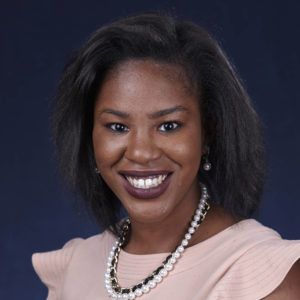This semester, in our spring series, PCURs will interview a graduate student from their home department who either is currently a graduate student at Princeton, or attended Princeton as an undergraduate. In Graduate Student Reflections: Life in Academia, interviews with graduate students shed light on the variety of paths one can take to get to graduate school and beyond, and the many insights gained along the way from research projects and mentors. Here, Taylor shares her interview with Hadiya Jones.
~~~~~

What’s your research about?
As a black woman raised in a predominantly white middle-class suburb, I am intrigued, both personally and scholarly, by the diverse manifestations created by the intersection of race, gender, and class. I ultimately desire to study how black middle-class millennials, who are socialized in predominantly white spaces, navigate their identities, and I am particularly fascinated by how this process happens on the web.
Since around 2011, Black female media creators, such as Issa Rae, Numa Perrier, and Lena Waithe, have become hyper-visible in online communities with visual content/television such as Awkward Black Girl and Black and Sexy TV. 2015 began the transition of some of this online content to mainstream media platforms, such as Issa Rae’s Insecure on HBO.
My dissertation considers the rise in online content by Black women concerning Black women as a mechanism to explore Black middle-class identity in the contemporary moment. Methodologically, this project sits at the intersection of virtual ethnography, digital humanities, Black feminist thought, and comparative sociology. By conducting interviews with visual media creators, fans, and Black middle-class millennials, participant-observation in online fan communities, mainstream production studios, and related conferences, and text analysis of online fan comments and related cultural conversations on blogs and social media, I aim to not only explore the cultural products created by Black women on the web and those which have transitioned to mainstream platforms, but to situate their creations within a larger socio-historical context.
How did you end up deciding to go to graduate school?
This project, as well as summer research experiences, being a Mellon Mays Fellow, and having amazing faculty mentors, helped me end up deciding to go to graduate school.
As a dual English and sociology major, I developed several research projects focused on how women of color navigate their identities through virtual spaces with the help of some of my undergraduate professors. My interest in this topic started the summer after my freshman year with my love of the YouTube web series, “The Misadventures of the Awkward Black Girl”, and the guidance of Dr. Adrienne Brown at the University of Chicago through the Leadership Alliance program. I continued this work as a UNCF Mellon Mays Fellow throughout my undergraduate years, and at Princeton’s Leadership Alliance program with Dr. Valerie Smith.
By the time that I was a senior at Spelman College, pursuing graduate school not only seemed like the thing that I should do, but what I wanted to do.
How do you maintain a balance between your academic and personal life?
I maintain a balance, by forcing a balance. I think that I decided at the end of my second year of my Ph.D. program that I was not going to allow graduate school to stop my life or to stop me from living my life. Work will always be there, and I honestly just try to not allow it to stress me out. I still hang out with my friends. I am home in Kentucky for every major holiday. I still read fiction for fun.
What was the most unexpected part of graduate school?
For me, I think the most unexpected part of graduate school was realizing what mainstream sociology was and what it wasn’t, and really understanding that the interdisciplinarity of undergraduate research is a much harder push in a Ph.D. program. I found that many people in these spaces are very concerned with discipline boundaries in ways that I am not and probably will never be, and have more limited conceptions on what can be sociology and what for instance is really a humanities project. This also can make studying race in certain ways, especially when you are talking about focusing primarily on Black women, more of a challenge and some spaces in graduate school can be a bit hostile (however, not all spaces are hostile, and I figured that out).
What is the best part of graduate school?
For me, the best part of graduate school is being able to work on research that I both care about, and that I think is being overlooked in many fields. Complicating discipline boundaries and scholarship, and disrupting master narratives are tasks which are very important for me, and I hope that my research will help do that. Also, being able to see this project that I have been thinking about since my freshman year of college to come to fruition is amazing. Graduate school is a great space to think, and to read. I also greatly appreciate the flexibility of time that the world of academia provides.
Listening to Hadiya’s experiences was very insightful. As someone who has just completed research on black women in media, I found it particularly inspiring to see how her work in undergrad flourished and developed into meaningful graduate research. I look forward to learning more about Hadiya’s work as she continues her research and I hope that this interview helped reveal more about the graduate school experience.
–Taylor Griffith, Social Sciences Correspondent

